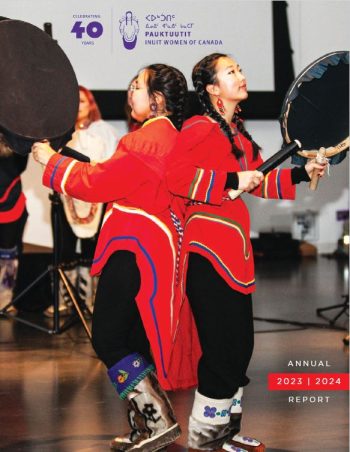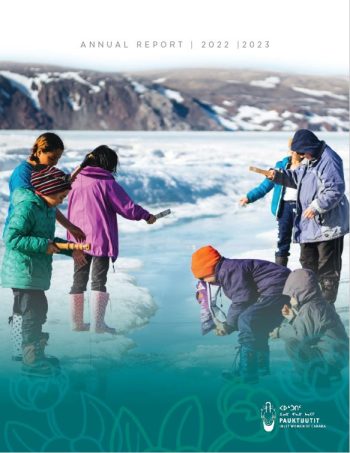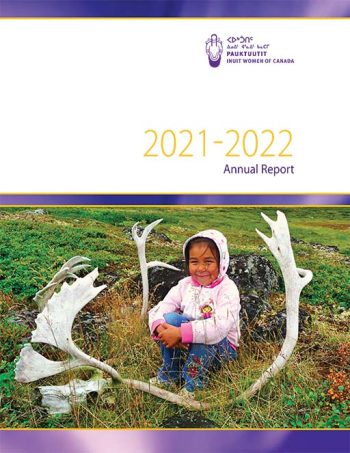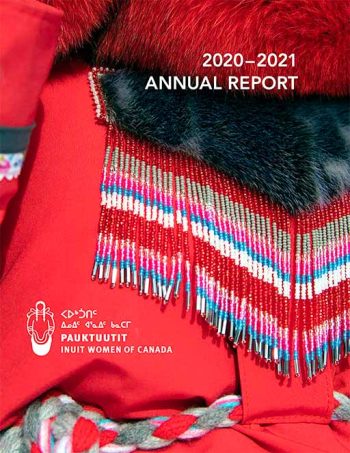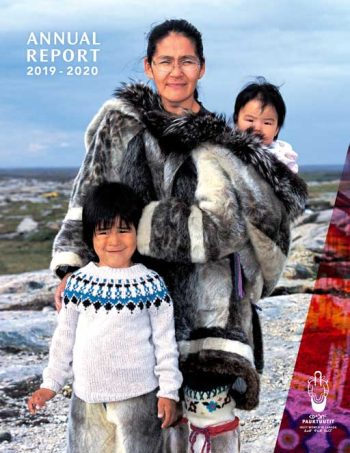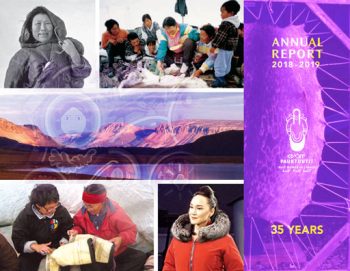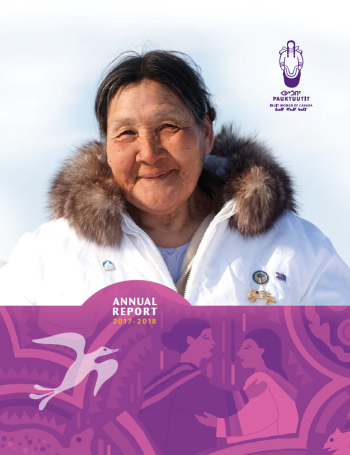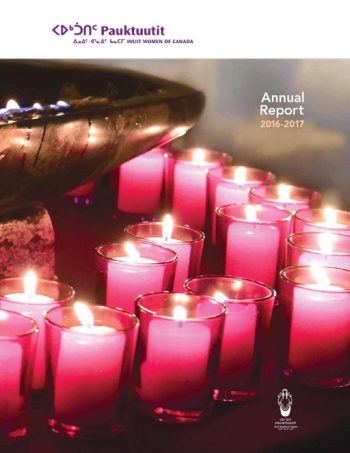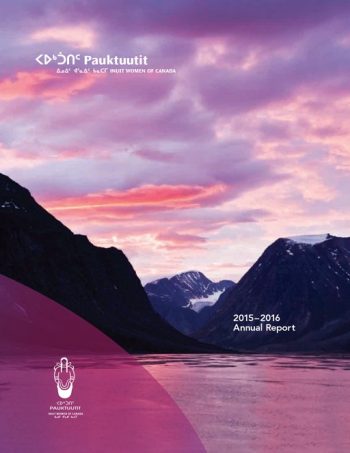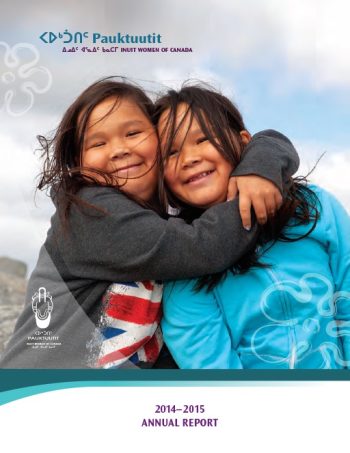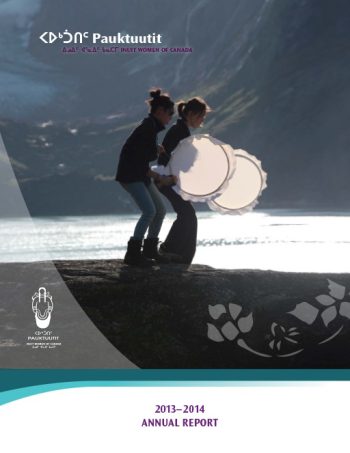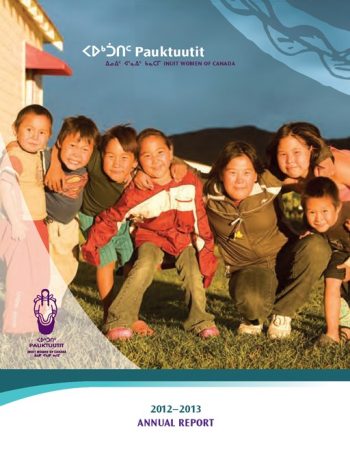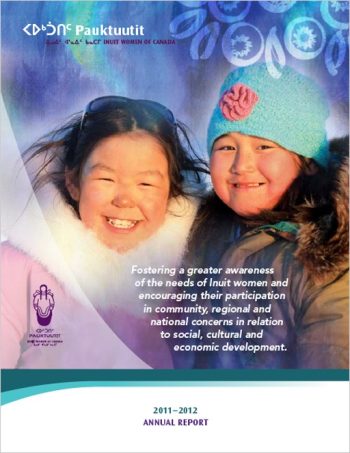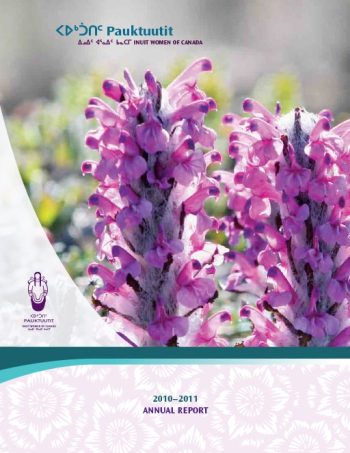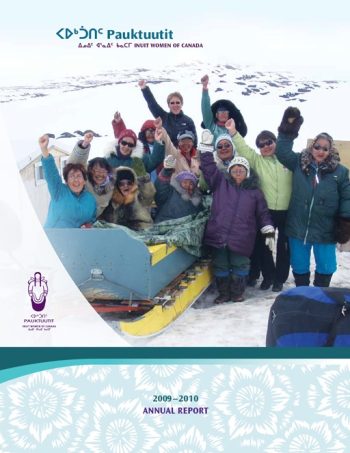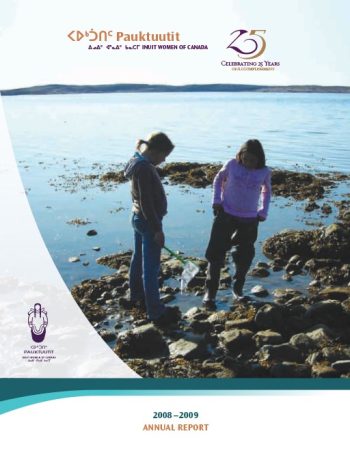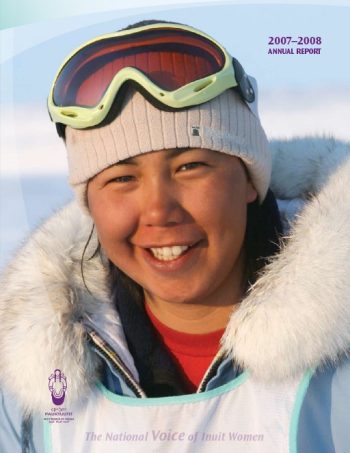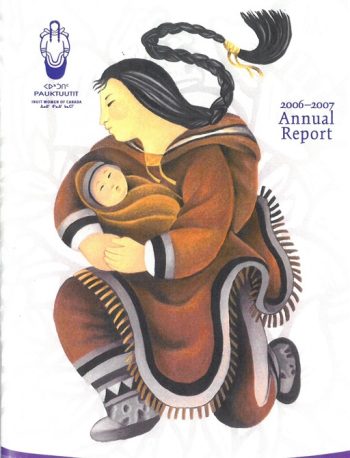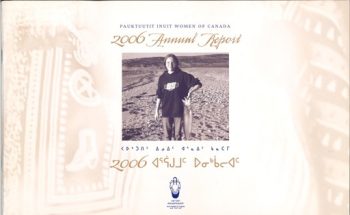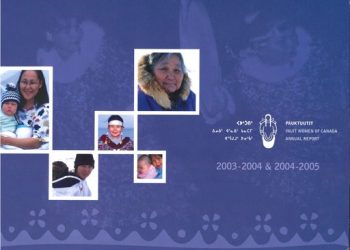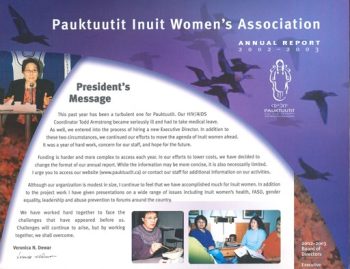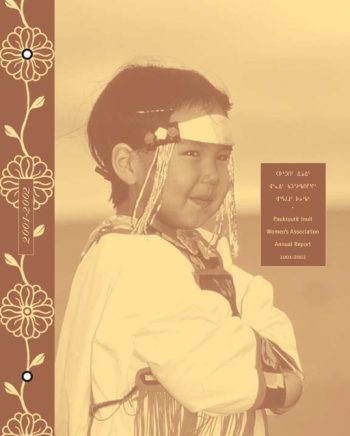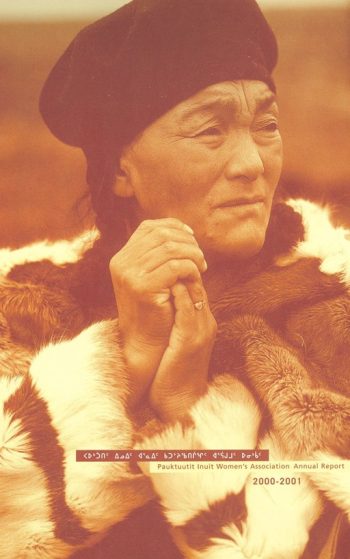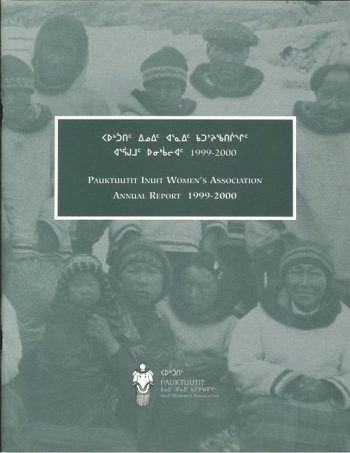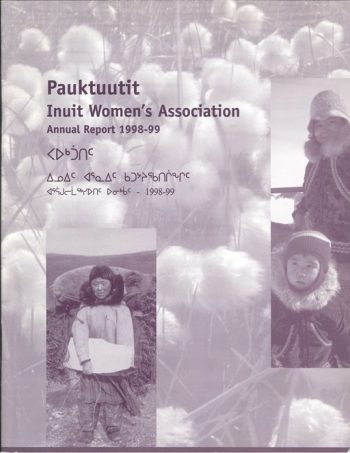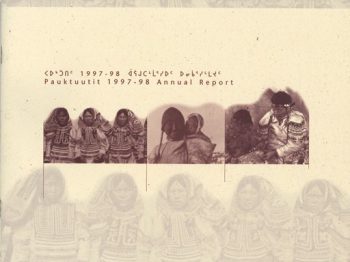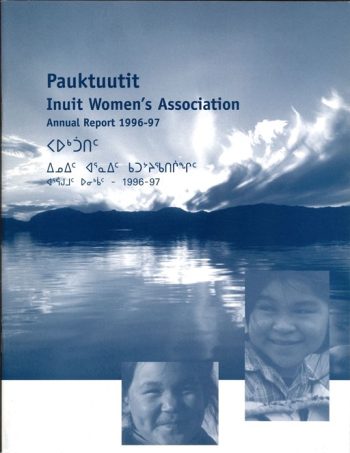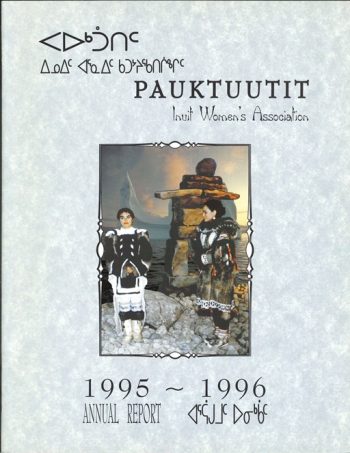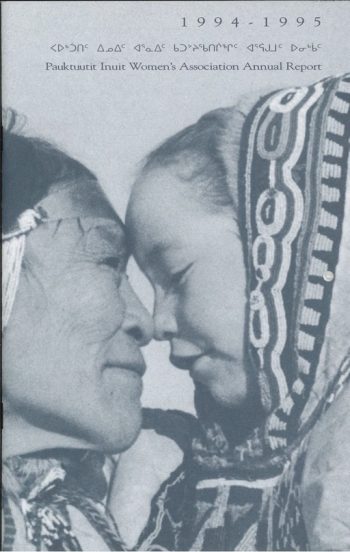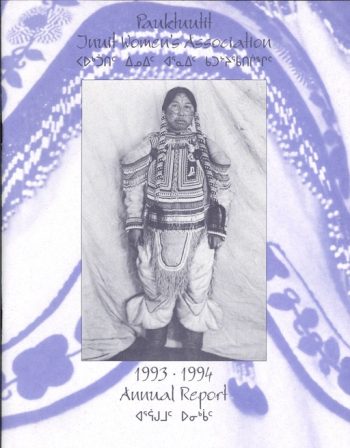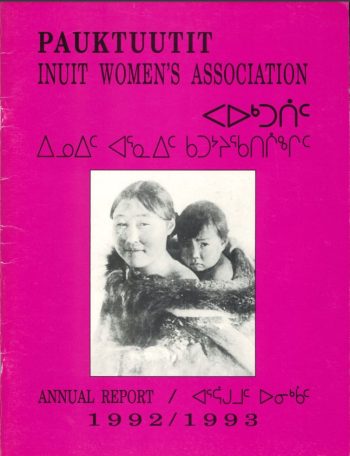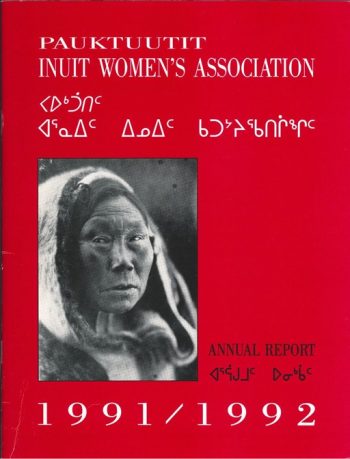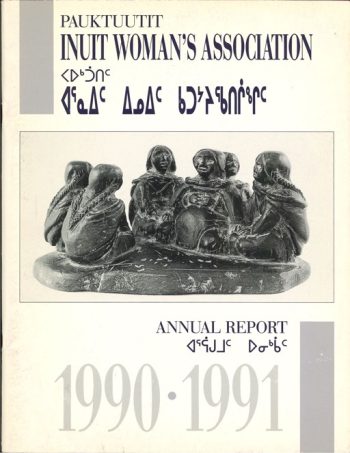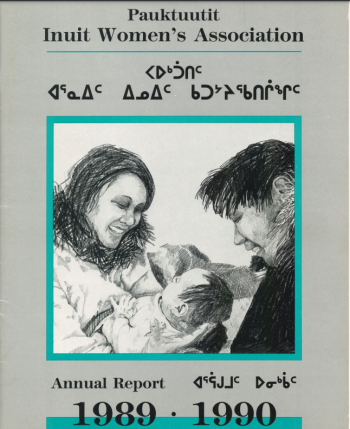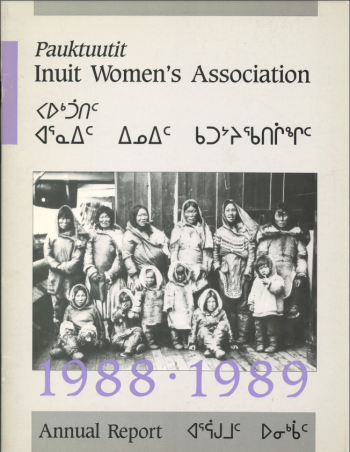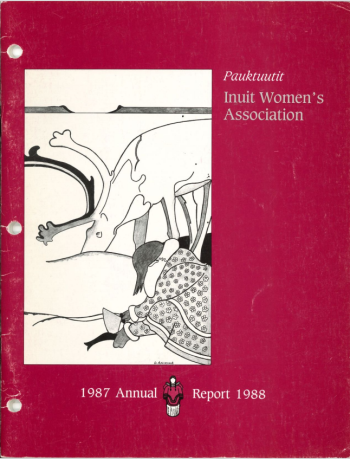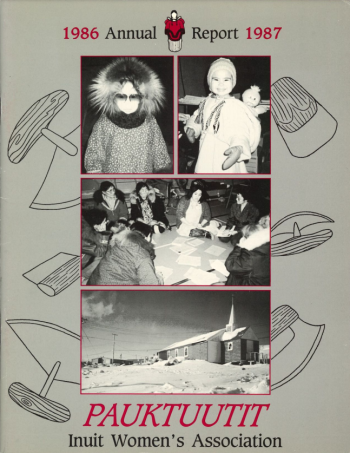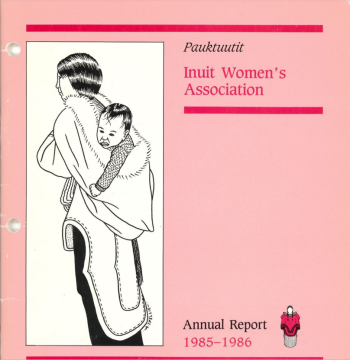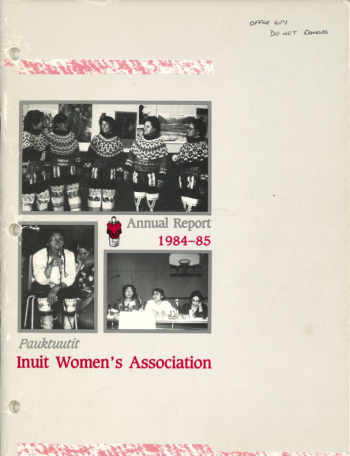Publications
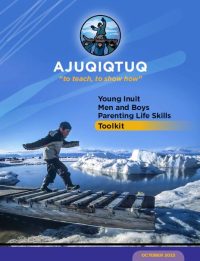
EYMB Toolkit
Ajuqiqtuq Parenting Life Skills Toolkit was developed to articulate and reinforce the benefits of preparing young Inuit men and boys to understand the skills needed to communicate and maintain healthy relationships, to learn about the importance of managing anger and stress, and to understand the value of accepting gender and sexual diversity among Inuit. Together, this knowledge will help young fathers discover practical coping skills to help them positively manage the stress and frustration that can come with parenting.
The toolkit also offers practical information on life skills grounded in Inuit Quajimajatuqangit, interpersonal communication skills in promoting gender equality and providing care and support in efforts to prevent gender-based violence. The toolkit also covers Inuit games and land-based activities for youth bonding and learning about resilience. The tools and activities provided may be adapted and utilized by other organizations, in addition to offering guidance on advocacy, needs assessment, and monitoring related efforts to engage Inuit young men and boys.
The purpose of the Ajuqiqtuq Toolkit was created to:
- Provide guidance to plan and facilitate a Parenting Life Skills Workshop for young Inuit men and boys;
- Share the ever-growing body of Inuit knowledge on mental and emotional life skills, healing, and Inuit parenting; and
- Contribute to healthy families.
Year Published October 2023
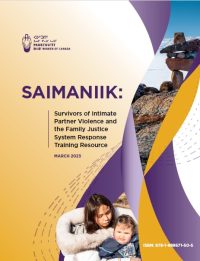
Saimaniik Toolkit
The Saimaniik Toolkit, developed by Pauktuutit Inuit Women of Canada, addresses the overrepresentation of Inuit women in experiencing intimate partner violence (IPV) and the barriers they face in accessing support. It aims to enhance understanding among justice practitioners of the historical and current contexts shaping these experiences, providing practical strategies to help Inuit communities deal with IPV.
Saimaniik Toolkit was developed with input from survivors of IPV, legal professionals, subject matter experts, community members from across Canada. It is designed to:
- Establish the needs and priorities for survivors of intimate partner violence.
- Help close the service gaps.
- Strengthen the understanding of the legal service providers of challenges and risks faced by Inuit women
Year Published March 2023
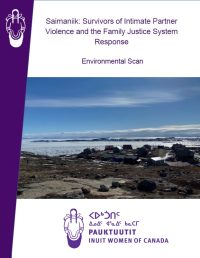
Saimaniik Environmental Scan
The environmental scan conducted for the Survivors of Intimate Partner Violence and the Family Justice System Response Project covers resources and services in each region of Inuit Nunangat and select urban centers, as well as at broader national, provincial, and territorial levels. It identifies existing resources for law practitioners and frontline workers supporting Inuit IPV survivors through the legal system, highlighting gaps and needs. The scan focuses on Inuit-specific or broadly relevant Indigenous Canadian resources, excluding non-Indigenous specific materials.
All actions undertaken should be grounded in evidence-based data to support responses. To ensure that the voices of Inuit women are heard, we support research, data collection, and environmental scans / gap analysis, in all projects.
Year Published February 2023
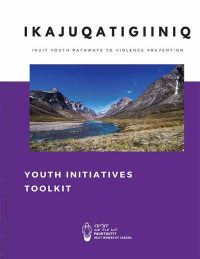
Ikajuqatigiiniq Inuit Youth Pathways to Violence Prevention
Ikajuqatigiiniq: Youth Initiatives Toolkit intends to assist Inuit youth across Inuit Nunangat and urban centers to develop and facilitate their own youth camp or activity. In this toolkit, you will find templates and resources to ease the republication of these youth-focused events. Given the need for flexibility and relevance to your community, the toolkit allows you to choose which resources are best applicable in your context and adapt it to create additional activities for your camp or activity.
The project was funded by First Nations and Inuit Health Branch and Family Violence Prevention Program (FVPP) – Indigenous Serviced Canada.
https://pauktuutit.ca/wp-content/uploads/IkajuqatigiiniqToolkit_ENB_FINAL.pdf
https://pauktuutit.ca/wp-content/uploads/IkajuqatigiiniqToolkit_SB_FINAL.pdf
https://pauktuutit.ca/wp-content/uploads/IkajuqatigiiniqToolkit_NUNA_FINAL.pdf
Year Published 2021
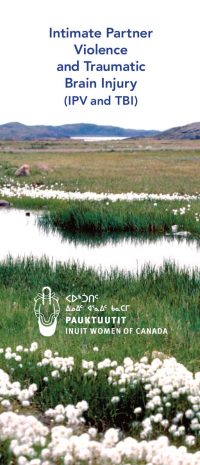
Intimate Partner Violence and Traumatic Brain Injury
Intimate partner violence (IPV, which can also be known as acts of violence with a personal partner) refers to the body, sexual, and personal/physical thinking acts of violent behaviour by a current or former intimate partner. Intimate partner violence traumatic brain injury (IPV TBI) can occur from any blow or outside force on the head, face or neck, or somewhere else on the body that causes a sudden jarring or shaking of the head. It may also occur when a person is choked or strangled leading to a less blood flow to the brain.
https://pauktuutit.ca/wp-content/uploads/Pauktuutit_IPV-TBI_Violence_Brochure_Kivalliq_1.pdf
https://pauktuutit.ca/wp-content/uploads/Pauktuutit_IPV-TBI_Violence_Brochure_NorthBaffin_1.pdf
Year Published 2021
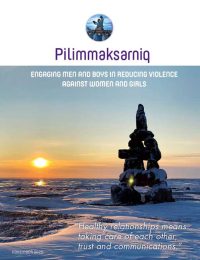
Pilimmaksarniq: Engaging Men and Boys in Reducing Violence Against Women and Girls – Phase II
The lesson learned from the Phase II activities of our Engaging Inuit Men and Boys in Reducing Violence Against Women and Girls project had informed and provided evidence for enhancing the Pilimmarksarniq toolkit.
The toolkit was revised to include the National Inuit Role Model Campaign, additional content and resources shared by our subject matter experts, and to create a more visually appealing and accessible document.
The project is meant to increase awareness and to strengthen coping skills among Inuit men and boys in an effort to reduce gender-based violence within Inuit communities. The toolkit is a set of documents that provide the information necessary to:
- Help assess community and individual readiness for healing and change;
- Identify a natural helper;
- Go about initial training and networking;
- Start a men’s group;
- Develop a group framework;
- Hold exercises and activities with participants to address issues such as self-awareness and self-esteem, anger, jealousy, unresolved trauma, etc.;
- Calculate program costs; and
- Organize program details such as, possible places to find funding, how to access the funding, finding a physical location, etc.
https://pauktuutit.ca/wp-content/uploads/EMB-Pilimmaksarniq-Toolkit-EN.pdf
Year Published 2020
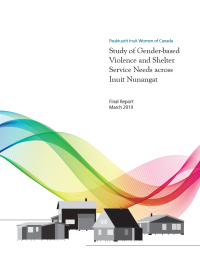
Study of Gender-based Violence and Shelter Services Needs across Inuit Nunangat
- https://pauktuutit.ca/wp-content/uploads/PIWC-Rpt-GBV-and-Shelter-Service-Needs-2019-03.pdf
- https://pauktuutit.ca/wp-content/uploads/PIWC-Rpt-GBV-and-Shelter-Service-Needs-2019-03-Executive-Summary.pdf
- https://pauktuutit.ca/wp-content/uploads/PIWC-Rpt-GBV-and-Shelter-Service-Needs-2019-03-Recommendations.pdf
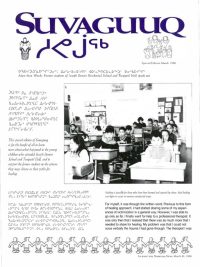
Suvaguuq – Special Edition March 1996
This special edition of Suvaguuq is for the benefit of all to learn more about what happened to the young children who attended Joseph Bernier School and Turquetil Hall, and to support the former students in the options they may choose as their paths for healing.
https://pauktuutit.ca/wp-content/uploads/1996_Suvaguuq.pdf
Year Published 1996
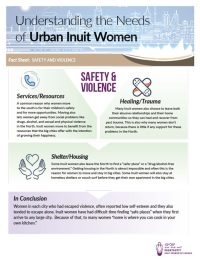
Fact Sheet: Safety and Violence
Women in each city who had escaped violence, often reported low self-esteem and they also tended to escape alone. Inuit women have had a difficult time finding “safe places” when they first arrive in any large city. Because of that, to many women “home is where you can cook in your own kitchen.”
https://pauktuutit.ca/wp-content/uploads/UAS_factsheet_safety_violence.pdf
Year Published 2018
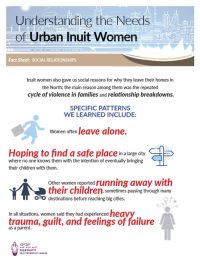
Fact Sheet: Social Relationships
Inuit women also gave us social reasons for why they leave their homes in the North; the main reason among them was the repeated cycle of violence in families and relationship breakdowns.
https://pauktuutit.ca/wp-content/uploads/UAS_factsheet_social_relationships.pdf
Year Published 2018
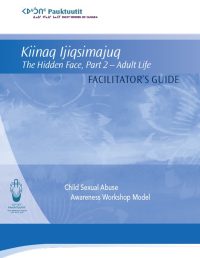
Kiinaq Ijiqsimajuq The Hidden Face, Part 2 – Adult Life: Facilitator’s Guide
Phase II of Addressing the Needs of Child Sexual Abuse Survivors adapted a second DVD that was produced in Greenland. The first DVD addresses the impacts of child sexual abuse on a child while the second DVD addresses the adult implications of child sexual abuse. It is important that both the first and second DVD are part of the training module/resources.
Due to the sensitive nature of the content and the need to have a safe environment to discuss these issues, Pauktuutit recommends that The Hidden Face curriculum be used in professional development settings until more supports and resources for sexual abuse victims, survivors and their families are available in the communities.
https://pauktuutit.ca/wp-content/uploads/Pauktuutit_HiddenFace_FacilitatorsPart2_WEB.pdf
Year Published 2012
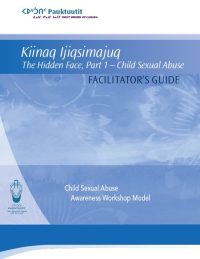
The Hidden Face, Part 1 – Child Sexual Abuse: Facilitator’s Guide
Pauktuutit was able to undertake Phase I of the Addressing the Needs of Child Sexual Abuse Project in 2007/08. The objectives were to adapt a DVD public awareness tool entitled The Hidden Face from Greenlandic to a Canadian Inuktitut dialect, to develop a facilitator and participant manuals, publication and accompanying workbook for a four-day training workshop for front-line workers, educators and other professionals.
Due to the sensitive nature of the content and the need to have a safe environment to discuss these issues, Pauktuutit recommends that The Hidden Face curriculum be used in professional development settings until more supports and resources for sexual abuse victims, survivors and their families are available in the communities.
https://pauktuutit.ca/wp-content/uploads/Pauktuutit_HiddenFace_FacilitatorsPart1_WEB.pdf
Year Published 2012
